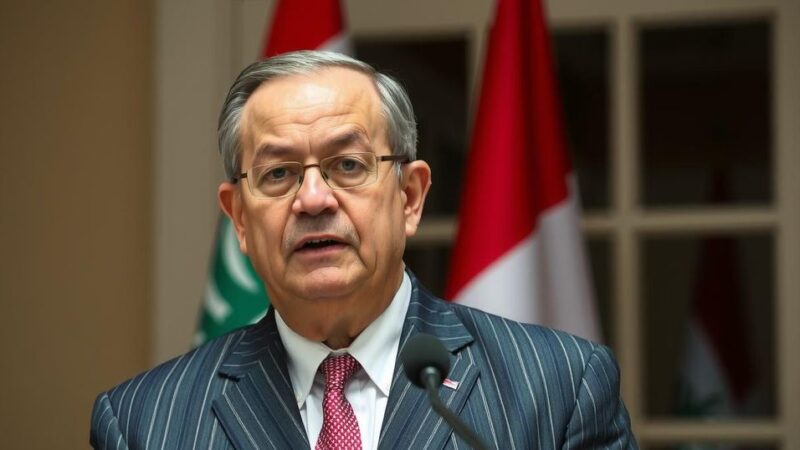Lebanon has elected Joseph Aoun as its new president, marking the first time in over two years that the country has had a leader. Supported by the United States, Aoun’s election ends a power vacuum and signals diminishing Iranian influence in the region, with over two-thirds of lawmakers voting in favor of his presidency.
Lebanon has elected army commander Joseph Aoun as its new president, marking a significant shift in political alignment as he becomes the first leader in over two years. Aoun, endorsed by the United States, received approval from more than two-thirds of lawmakers, successfully overcoming the political stalemate that had paralyzed the nation. His election heralds the end of a power vacuum, suggesting a decline in Iranian influence within the region, as Aoun begins his six-year term amidst changing geopolitical dynamics.
The political landscape in Lebanon has been characterized by instability and foreign influence, particularly from Iran. The election of Joseph Aoun signifies a pivotal moment for Lebanon, as prior attempts to appoint a president had failed for over two years due to entrenched divisions among lawmakers. The support he garnered suggests a recalibration of Lebanon’s alliances, with the United States playing a more substantial role in the country’s leadership selection, an indication of shifting regional power balances.
The election of Joseph Aoun as president reflects a vital shift in Lebanon’s political dynamics, highlighting a potential decline in Iranian influence. With over two-thirds of lawmakers supporting his candidacy, Aoun’s assumption of the presidency concludes a lengthy period of political inertia. This development may foster a renewed focus on American partnerships in Lebanon, underscoring changing geopolitics in the region.
Original Source: www.poncacitynews.com







